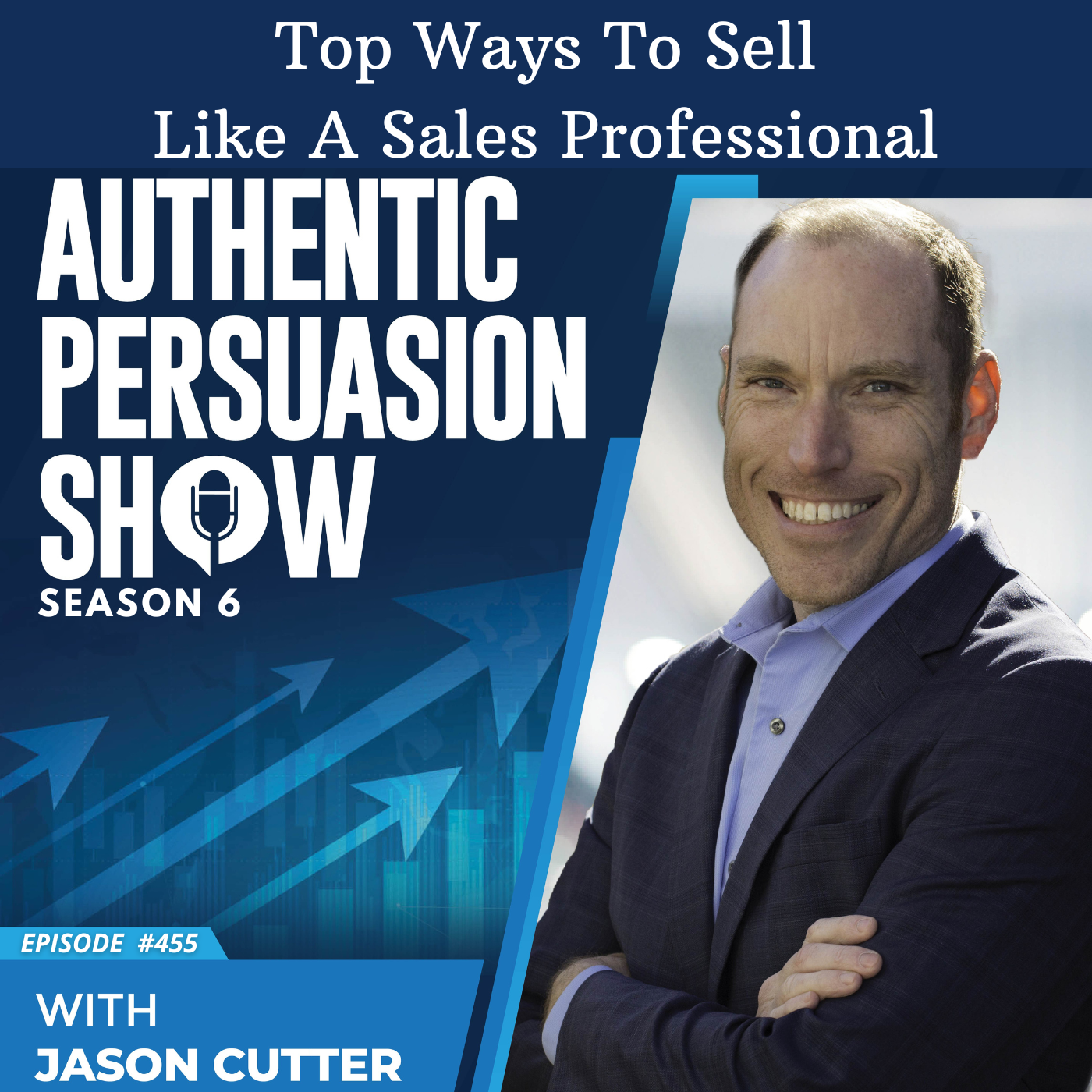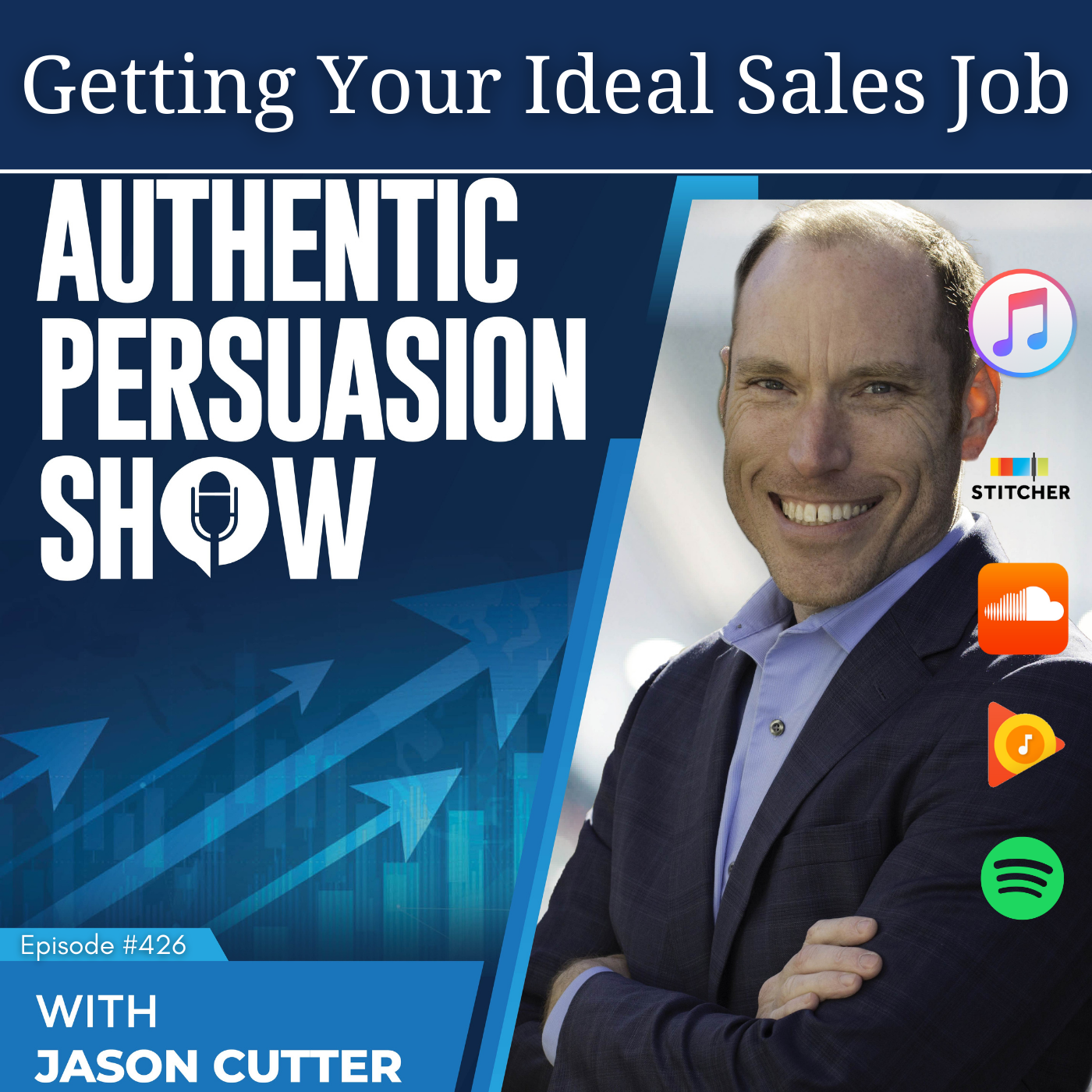Show Notes
I won’t say never…but in my opinion salespeople should almost never ask for the sale.
That is not what a professional would do.
Yes, ultimately, it’s up to the prospect to decide if they want to buy, but stop asking them!
In this episode, I talk about what to do instead, and why.
Episode 97 – Transcript
Welcome back to another episode of the sales experience podcast, so glad that you’re here. Episode 97 thank you for listening, downloading this. Hopefully you subscribed. If not, go back to wherever you downloaded this from. Hit the subscribe button if it’s possible, if it’s their iTunes, leave a rating, leave a review. All of that really helps. I appreciate it. It just tells other people the value you’ve gotten out of this show and explains to them what they could also get out of this and I appreciate that.
I’m so grateful for everyone who shares these episodes. I don’t always look at the stats for this because I don’t necessarily do it for the stats or the likes or that kind of feedback. However, I am enjoying it when I check in and see that it’s expanding and there’s more and more downloads all the time, as well as the expansion around the globe.
It’s so fun to see these episodes downloaded in so many different countries. I appreciate that. If you’re in sales or a sales manager, share it with your team. Share it with other people you know in sales. Share this with people who are thinking about getting into sales and aren’t sure if this could be for them. Have them listen to literally a hundred episodes of this and then they’ll realize whether or not they want to be in sales and this is a good guide for that.
Today’s episode goes along with the topic of this week, which is closing topics. It’s closing strategies in the sales process. Now, if you listened to yesterday’s episode, episode 96 then you know that I talked about the fact that you shouldn’t need a closing strategy. That shouldn’t be your first priority. Your first priority should not be memorizing tons of sales, closing strategies, so you have those on deck.
Now, there’s always a time and a place. There’s some of those that can work, trial close, different things like that. Yeah, which could help with your sales process, but you want to be careful. I just want to recap from yesterday. You want to be careful because if you go hard with closing techniques, you could trend towards manipulation, which means you’re going to be enrolling people and selling them your product or service and that could lead to some cancellations and people who didn’t really want it, but you kind of pushed them and drove for the sale instead of them coming to you to buy.
Now for today’s episode, I want to talk about a close that’s very effective that you should be using 100% of the time. Now, how can I say this close? You should use 100% of the time. Well, if you’ve been doing things right that I have set up in this podcast for 90 something episodes and you’ve gone through the different phases or steps where you’ve applied what I’m talking about, what I’ve covered to your individual sales process.
Again, business to consumer, business to business. It could be a one call close, it could be a three or six months sales cycle, could be a product, could be a service. You apply these things, what I’ve been talking about and you mold that around your sales process and around your personality. Then what you will end up with is a consultative sales process. Not a hardcore closed process, not a overexplaining talking, throwing tons of stuff at people, process, not a hitting them with so much information that hopefully they’ll be so confused that they’ll buy from you process, but a consultative process where you’re asking questions going through your series of discovery based questions, getting at the root as deep as you can go, as deep as they will let you go at their issue, their pain, their goals, their wants, their desires, whatever that is that your trying to resolve wherever you’re trying to get them from where they’re at right now to where they could be in the future.
Hopefully a better place. Whether you’re solving a problem or achieving the goal on either end of that spectrum you are going to be asking questions, uncovering information that you can then apply to whether your product or service actually is a good fit for them.
End Result of your questions of your sales process as it leads up to the final transactional parts of what you’re selling is all about seeing if their issue matches your solution and you can actually help them get into a better place. It’s diagnosing their issue. Kind of like a doctor and then seeing if your prescription is the right thing. If you know how you can solve it and how you can get to where they need to go. Talk about it. I’ve mentioned it many times, I’m going to cover it again. You heard it. It’s going to be repetitive. That’s the best way to learn.
When you go to the doctor, here’s how a normal appointment would go. Maybe it’s 15-minute appointment. You go into that doctor’s appointment for 14 out of the 15 minutes. I bet you based on my experience, the doctors asking you questions, poking [inaudible], testing, checking, having you stand on one leg, having you take this test, do this, do that, read this chart, whatever it might be. They are asking you questions and putting you through the gauntlet for 14 out of those 15 minutes of the employment, and that’s on top of what the nurse did before you even got in the room and all this stuff. They checked and tested and wrote in your chart. Then at 14 minutes into the appointment, the doctor then says, okay, based on what I’ve discovered from you, here’s my diagnosis and then here’s the prescription. Whether it’s physical therapy, whether it’s medication, whether it’s [inaudible], maybe more testing, maybe it’s surgery, whatever that is, here’s the prescription.
Now go do it. Do you have any questions? Okay, great. Now go. It’s not one minute of questions and then 14 minutes of back and forth and explanations and all of these things. It’s 14 minutes of questions and discovery leading into literally one minute of diagnosis and prescription and then sending you on your way.
Your sales process should literally mirror that experience depending on what you’re selling, you know, some combination of that timeframe and percentage of time. And the key that a doctor does, and this is the whole point of this episode I wanted to cover, is that when it comes to the end, the doctor is assuming they’re using the assumptive close on you, the patient, you booked the appointment, you came in, you spent the time, you answered their questions. They take that permission to resolve your issue and get you into a better place by all of you.
The actions you have taken as that patient, you have given them permission and then they’re going to assume that you also want a solution to whatever it is that they uncover that you’re struggling with. And so that’s the same thing in sales. The assumptive close is so important as you get to the end of your process of questions, uncovering discovery, you know, empathy, trust, building, all of those things that come up to the end.
Once you get to the end where you want to prescribe the solution that solves their issue, just assume that’s literally it. All you want to do is just assume and say, okay, well based on everything you told me, here’s the solution I have it. Here’s what it looks like. Now the next step is we need to go into this, this and this. Any questions before we move forward? That’s literally it.
The assumptive close, in my opinion, is the only clothes that you should use 100% of the time and when everything is done right leading up to that point, it should be effective almost every single time because you already know their problem and then you know the solution and you’re providing it and then you’re moving forward. The assumptive close is so important and I see so many salespeople do this wrong and the reason why I say they do it wrong, they actually mess this up, is that a lot of salespeople are in order taker mode. So they get to the end and they say, okay, what would you like to do and what do you think is best for you, Mr. Prospect. Instead, they have come to you, you’re the professional, and again, they could be an inbound call to you. They filled out the form on the website.
They were transferred to you or you cold called them and you reach out to them or you knocked on their door or whatever it is, but they should see you as the professional. No matter how the conversation started, no matter what the relationship started like they should view you as the professional and as such, like the doctor example, you’re giving them the prescription and then assuming they want to move forward every single time. Assume that if your product or service fits for them, that you’re going to move forward.
Now, of course if it doesn’t, if you find out they have an issue that you can’t solve, don’t force it. Don’t move forward. Don’t try to close that deal because that will bite you in the butt later on. If that’s the case, tell them a different prescription. Point them in a different direction, provide them some value and help them move along in a different way.
But if you know you have the solution, it’s 100% you can solve their pain or you can get them into a better place or achieve their goals. Then assume the close and just move forward. Make them stop you. And again, like I tell everybody, I use my powers for good and not for evil. I want to solve problems and help people transform into the better version of where they could be as a prospect for me, right?
Not just my consulting clients, not just sales reps in general, but I’m talking like front lines, dealing with sales, dealing with that prospect and moving them to a customer. I want to transform and help them get to a better place and once know I can, I’m assuming and I’m going to make them stop me. I’m not going to stop me. I’m not going to ask them if they would like to move forward if they think this is a good idea.
I’ve already determined that I’m the professional. Your doctor would never say, Hey, you have cancer, and I think a surgery would be best. What would you like to do to handle the cancer? Or your leg is broken. We need to fix it. We need to straighten it, and then we need to put a cast on it. What would you like to do, sir? Which way would you like to go with this? No, they just tell you what they’re going to do.
They might get a little bit of permission from you, but then they’re off to the races. They’re assuming that that’s what you’re going to want to do unless you stop them because they’re the professionals. That’s what you need to do in sales. If you do that, it will create dramatic results in your sales career and create an amazing sales experience.
That’s it for this episode. I appreciate everyone who listens. I appreciate all of you taking the time to listen to this.
I hope you can put this in practice in your sales career and as always, remember that everything in life is sales and people remember the experience you gave them.
![[E97] Closing Week: Professionals don’t ask for the sale](https://episodes.castos.com/salesexperiencepodcast/images/TSEP-Cover-Closing-Week.png)


